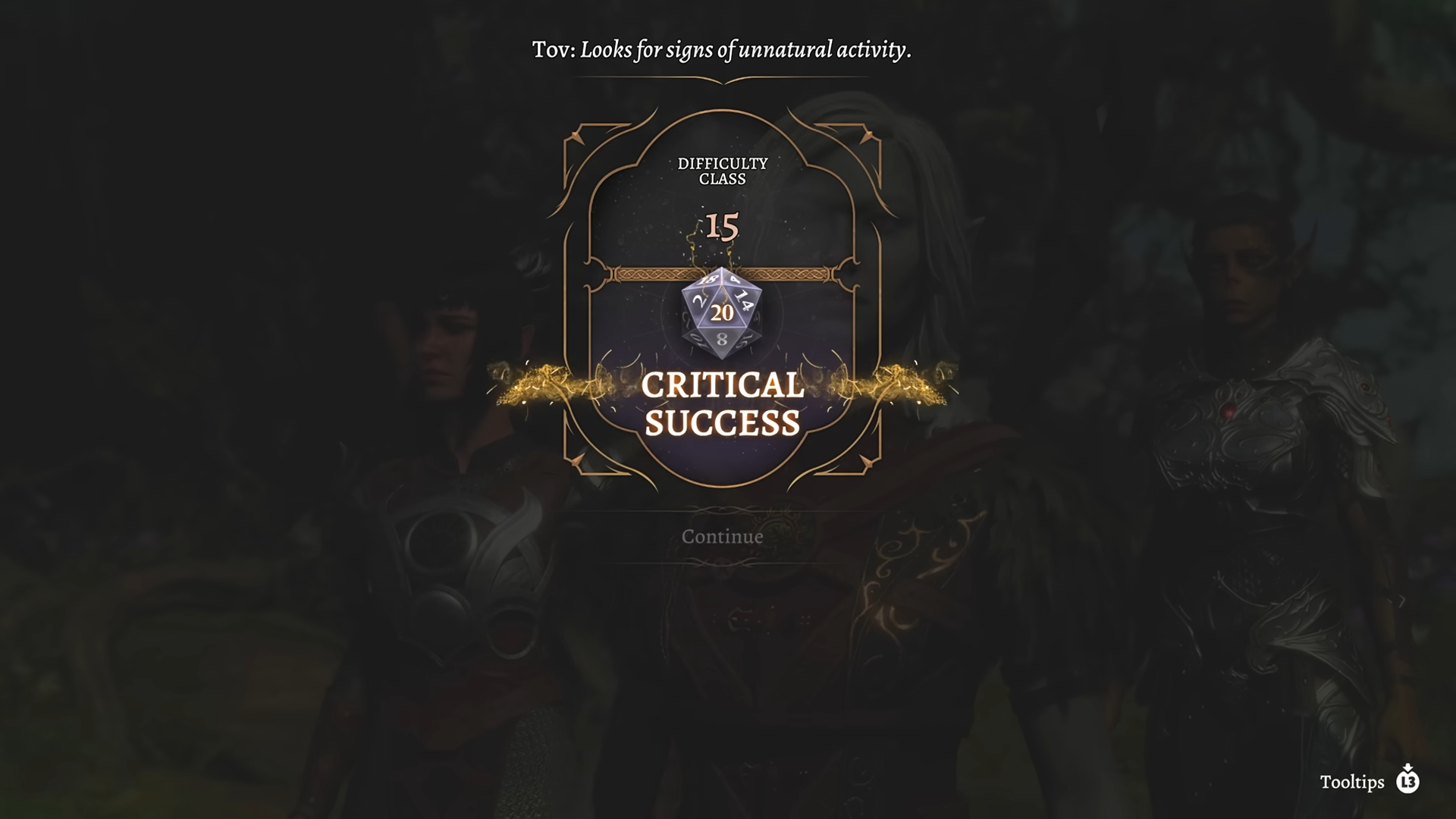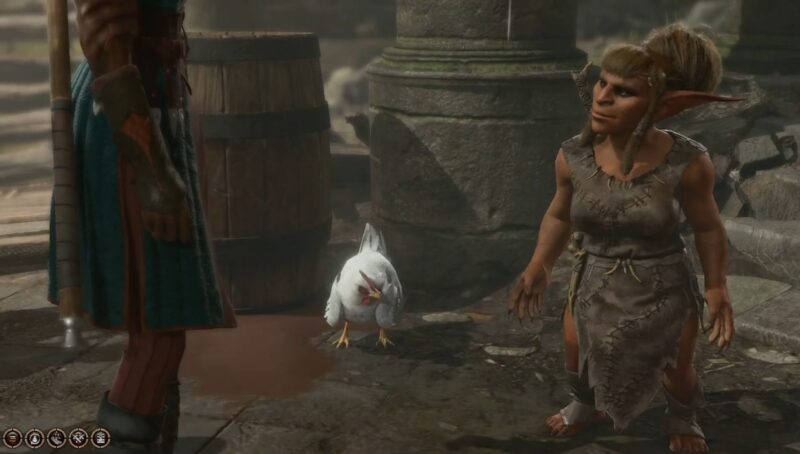The Tier List will analyze the best and worst classes in Baldur’s Gate 3 based on their damage output, survivability, utility, and flexibility.
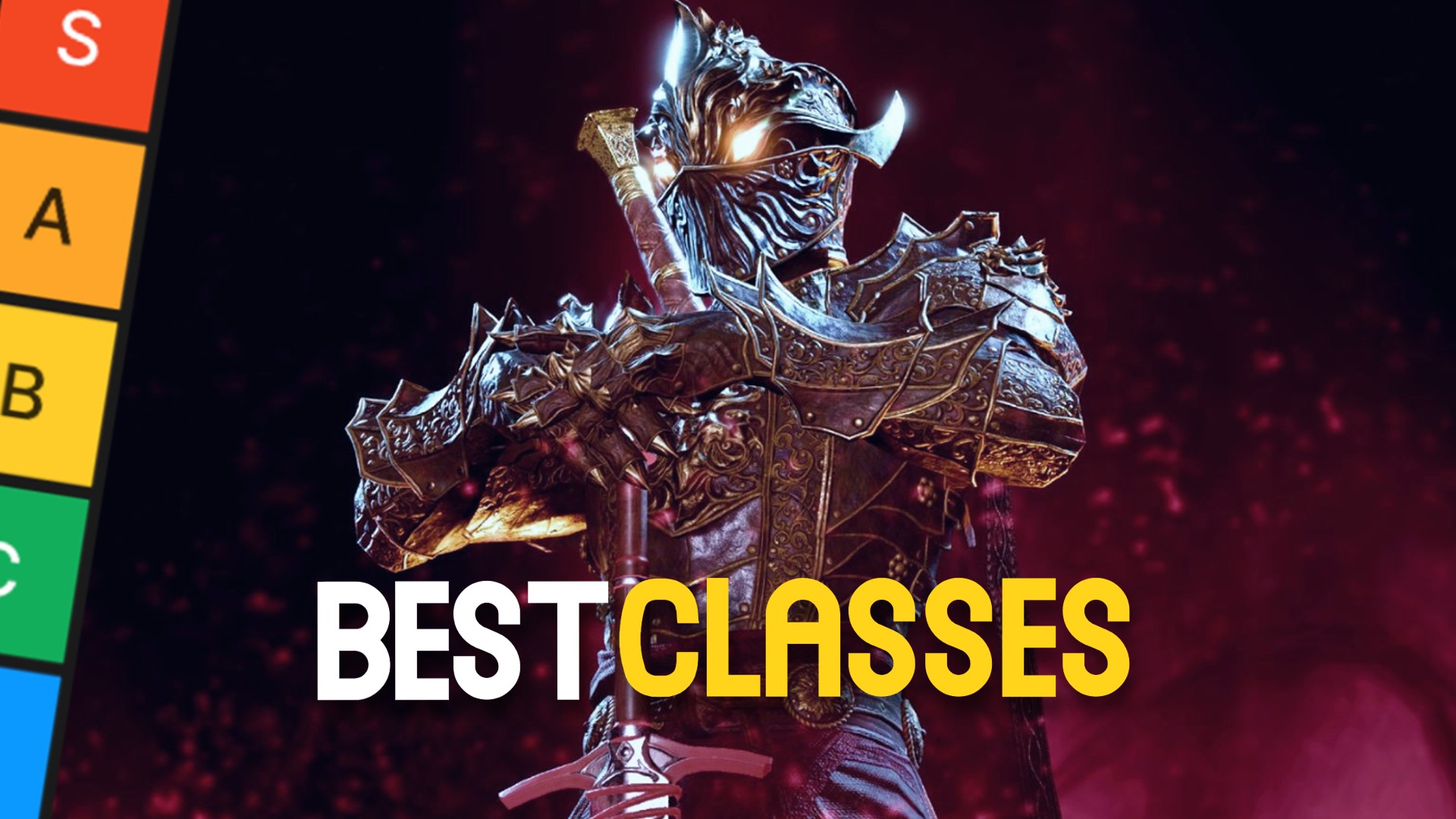
Whether you’re new to the game or getting ready for a new journey with the release of Patch 7, grasping the strengths and weaknesses of each class is crucial for optimizing your party’s effectiveness. Developed by Larian Stuiods, the Baldur’s Gate 3 class and subclass system is based on the widely popular tabletop game of Dungeons & Dragons. The game offers players a unique range of classes, each with it’s own unique abilities and playstyles.
Furthermore, the game’s class system allows you to choose from a vareity of options, including melee damage, ranged, spellcaster, support, and more. Consequently, the wealth of options can be overwhelming to choose from. In this Baldur’s Gate 3 Best Classes: Tier Lists we’ll be exploring the strength and weaknesses of each class, evaluating their playstyles, and ranking them based on their overall effectiveness and versatility.
- 12 Warlock (C- Tier)
- 11 Druid (C Tier)
- 10 Bard (B Tier)
- 9 Rogue (B Tier)
- 8 Wizard (B+ Tier)
- 7 Monk (A- Tier)
- 6 Barbarian (A Tier)
- 5 Ranger (A+ Tier)
- 4 Sorcerer (A+ Tier)
- 3 Fighter (S- Tier)
- 2 Cleric (S Tier)
- 1 Paladin (S+ Tier)
- Build Changes in Patch 7 for BG3
- Q1. What is the best class in BG3?
- Q2. What is the most picked class in BG3?
- Q3. What is the easiest solo class in BG3?
This guide has been updated for the Patch 8 version of Baldur’s Gate 3.
Baldur’s Gate 3 Classes Tier List
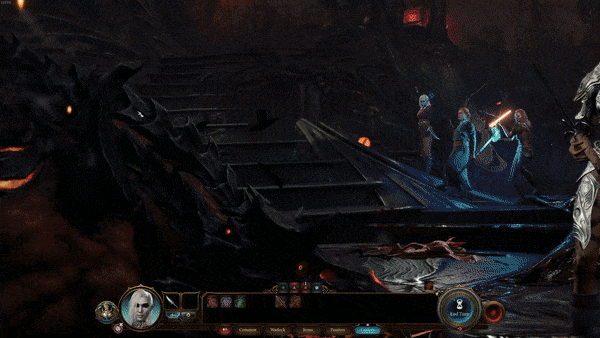
The Baldur’s Gate 3 Class tier list is below ranked best to worst:
- S Tier: Paladin, Cleric, Fighter
- A Tier: Sorcerer, Ranger, Barbarian, Monk
- B Tier: Wizard, Rogue, Bard
- C Tier: Druid, Warlock
What is The Best Class in Baldur’s Gate 3?
The Paladin is the strongest class and subclass in Baldur’s Gate 3 due to its damage output, survivability, and versatility. The Paladins can access various weapons and armour types, allowing for diverse playstyles. Combining Extra Attack with Divine Smite results in exceptional raw damage potential. The Paladin can also cast spells and heal allies, providing support and damage, and is the best overall Class currently in BG3.
Here is a tier list of all Baldurs Gate Classes Ranked:
| List Position | Class | Ranking |
|---|---|---|
| 1 | Paladin | S+ |
| 2 | Cleric | S |
| 3 | Fighter | S- |
| 4 | Sorcerer | A+ |
| 5 | Ranger | A+ |
| 6 | Barbarian | A |
| 7 | Monk | A- |
| 8 | Wizard | B+ |
| 9 | Rogue | B |
| 10 | Bard | B |
| 11 | Druid | C |
| 12 | Warlock | C- |
12 Warlock (C- Tier)
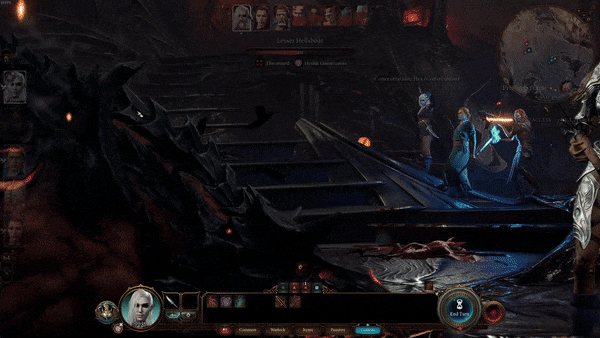
Warlocks are patrons of powerful otherworldly beings known as patrons. They are known for their potent spellcasting abilities and their ability to summon powerful creatures to fight alongside them.
Warlock Class Pros:
- Pact Boons: Warlocks can customize their build with a familiar or a pact weapon.
- Best Cantrip: Eldritch Blast Cantrip is the best for damage, along with Hex to debuff targets.
- Short Rest Spell Slots: Warlocks regain their spell slots on short rest.
Warlock Class Cons:
- Nothing Special: The Warlock doesn’t excel at anything compared to other classes.
- Limited Spell Slots: Warlocks have fewer spell slots overall, which can restrict their sustained spellcasting capabilities.
- Action Utility: Warlocks have no additional action or bonus action utility within their class.
The Warlock class is a very simple and easy-to-play class in BG3. However, the Warlock doesn’t excel at any aspect of Baldur’s Gate 3 compared to other classes. The Sorcerer and Warlock shine as spell casters, while the Rogue and Bard are powerful outside of combat due to their versatility. After Pact Weapon was nerfed in a previous patch, the Warlock and Paladin build faded in power, and with it the class strength. We prefer a Sorcerer or Rogue to the Warlock and suggest those classes depending on your playstyle.
11 Druid (C Tier)
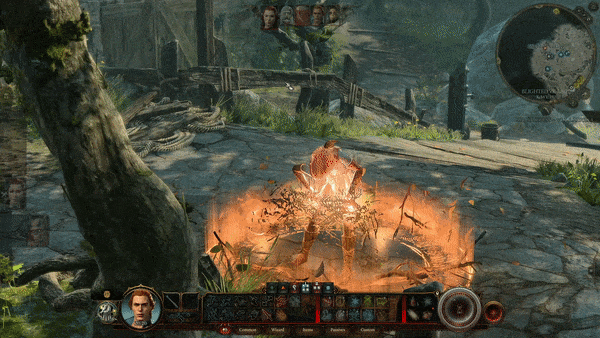
Druids are nature-based spellcasters who have access to a broad range of spells and abilities. They can shape-shift into various animal forms, granting them unique tactical advantages. Druids excel at support roles, crowd control, and summoning, making them valuable assets to any party.
Druid Class Pros:
- Shapeshifting: Druids can transform into animals, granting them unique abilities and tactical advantages.
- Armour Proficiency: Unlike other spell casters, Druids can use light, medium armour, and shields.
- Tank: With additional health via Wild Shape, the Druid class makes a great tank and powerful early in BG3.
Druid Class Cons:
- Shapeshifting Limitations: You are incentivized to Shapeshift which limits all of your powerful spellcasting.
- Additional Actions: The Druid has limited ways to take more than one action or bonus action per turn.
- Concentration Heavy: Druids’ spells are focused on concentration which limits being able to cast powerful spells in conjunction.
The Druid class emphasizes Shape Shifting into powerful animals which gives you ability score and health from your new form. Additionally, you won’t be able to cast spells while in Wild Shape form. While this Wild Shape mechanic starts strong, the class overall fades in power later in BG3 when spells become more powerful and classes are better suited for melee combat. The best way to play the Druid is the Circle of the Spores subclass which uses Wild Shape charges to enhance their spells. We recommend the Druid for players who are interested in the nature side of BG3 and aren’t concerned with overall combat power.
10 Bard (B Tier)
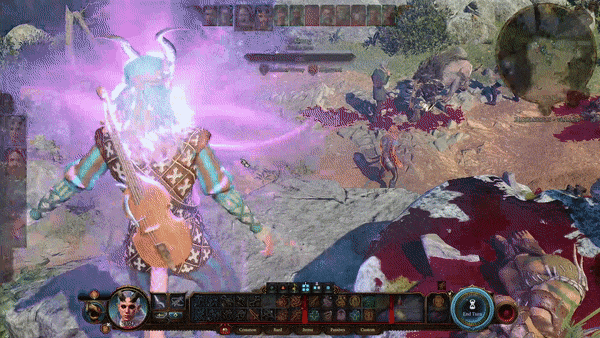
Bards are versatile characters who are skilled in a variety of areas, including music, magic, and utility. They are known for their ability to inspire their allies, debuff their enemies, and their unique ability to play musical instruments. Think of the Bard as an out-of-combat, fun, different and unique playstyle. Inside of combat, their ability diminishes significantly and is weak compared to other classes.
Bard Class Pros:
- Versatility: Bards can excel in various roles, including spellcasting, support, and melee damage dealers.
- Support: Bardic Inspiration is a unique buff that can aid allies.
- Range Damage: Bards excel with Dual Crossbow or Longbow in combat with Extra Attack.
Bard Class Cons:
- Weak Spell Selection: Bards have some of the worst spell selections at higher levels in the game.
- Extra Attack: This class feature comes at one later level than other classes, giving them an advantage over the Bard.
- Reliance on Concentration: Many Bard spells require concentration, limiting their ability to maintain multiple ongoing effects simultaneously.
The Bard class is the master of outside-of-combat power and dialogue-influencing options. Within combat, the Bard with College of Sword or Valour makes a great range build, but weaker in melee than other classes. Horrendous spell selection holds the class back, especially at later levels. However, we recommend this class to anyone focused on the story elements of BG3 and to play it as a ranged damage dealer.
9 Rogue (B Tier)
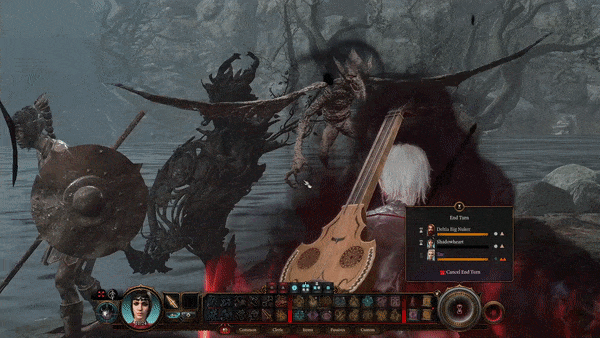
Rogues are masters of stealth, deception, and precision strikes. They excel in both melee and ranged combat, and their Sneak Attack feature allows them to deal substantial damage in a single strike. Rogues are very simple and easy to play and have massive damage potential.
Rogue Class Pros:
- Sneak Attack: Rogues can deal massive damage with their Sneak Attack feature passively.
- Skills and Expertise: Rogues get additional skill proficiency and expertise helping them excel outside of combat.
- Extra Bonus Action: The Thief subclass provides an extra bonus action which is used in many multiclass builds.
Rogue Class Cons:
- Limited Durability: Rogues are typically more fragile than heavily armored classes.
- Lack of Extra Attack: Rogues don’t have access to the Extra Attack feature, unlike other martial damage dealers.
- Reliance on Advantage: Rogues heavily rely on gaining an advantage in combat to maximize their Sneak Attack damage.
The Rogue is a fun class that starts very strong, but power quickly fades. The class’s main strength is outside of combat utility while exploring, sneaking, and, of course, stealing. The best way to play the Rogue is to quickly multiclass to the Ranger or FIghter after level 4 or 5. This allows you to gain extra attack while retaining the skill proficiencies and role of party thief.
Also Check:- BG3 Interactive Map
8 Wizard (B+ Tier)
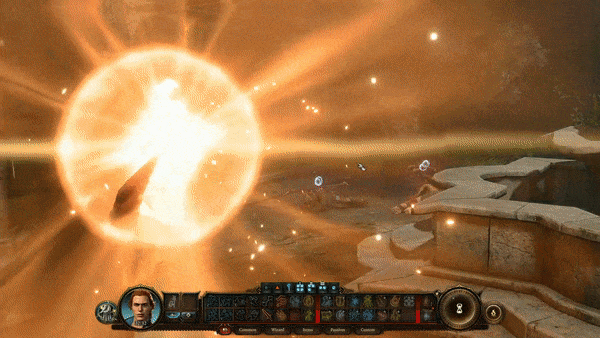
Wizards are renowned for their spellcasting prowess and unmatched versatility. They have access to the largest spell list in the game, enabling them to adapt to various situations, excelling in area-of-effect spells, utility, and control.
Wizard Class Pros:
- Broad Spell Selection: Wizards have the largest selection in the game.
- Many Subclasses: Wizard can focus on a particular type of magic.
- Intelligence Attribute: Wizards are the only class with Intelligence as a primary ability, thus they are helpful while exploring.
Wizard Class Cons:
- Additional Actions: Unlike other classes, the Wizard has limited ways to increase their actions or bonus actions.
- No Metamagic: Wizards are unable to use additional spell manipulation unlike the Sorcerer.
- Spell Preparation: You will need to swap in and out spells per encounter to avoid death.
We recommend the Wizard class for players who value variety and flexibility with their build. The subclasses are all unique and fun with Necromancy being great for summoning creatures and Evocation for area-based damage. Pick the Wizard if you want a spell caster focused on variety with good combat power as well.
7 Monk (A- Tier)
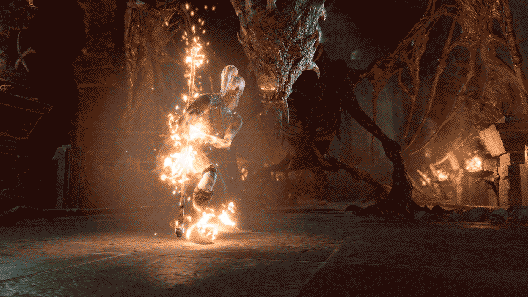
Monks are skilled and disciplined martial artists who harness their body’s inner energy to perform incredible feats of physical prowess and spiritual enlightenment. They are known for their unarmed combat, swift movement, and unique mystical abilities. In Baldur’s Gate 3, monks use a combination of unarmed attacks, polearms, and spells.
Monk Class Pros:
- High mobility: monks have high mobility by default and have a lot of tools for moving quickly.
- Unique Damage: Monks can deal with unarmed attacks and have a unique gameplay feel.
- Multiple Actions: Monks can have many attacks in one turn.
Monk Class Cons:
- Weak Support: Monks offer nearly zero group utility outside of crowd control.
- Crowd Control Vulnerability: Monks can be completely shut down with crowd control spells.
- Difficulty: Monks can be difficult to play effectively, requiring advanced knowledge of movement.
Monks are a very powerful and unique class due to Unarmed attacks. If you multiclass the Monk with the Rogue Thief subclass, you create a powerful multiple bonus action damage machine. With the Way of Open Hand subclass, you can gain another bonus action, which can be used for attacks. Monk isn’t higher on the list because of vulnerability to crowd control, lack of armor proficiency, and dependence on high movement.
6 Barbarian (A Tier)
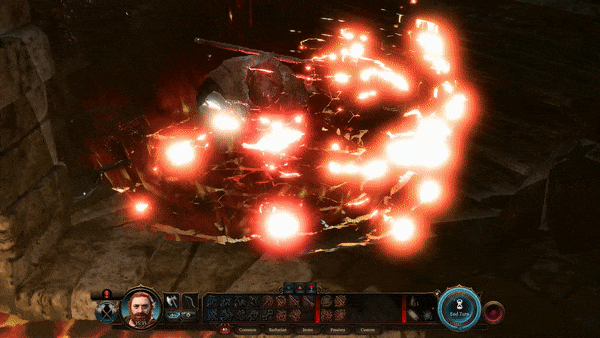
The Barbarian class offers exceptional strength, durability, and damage output. It’s rage and frenzy ability, combined with high hit points and powerful melee attacks, make it a force to be reckoned with on the battlefield.
Barbarian Class Pros:
- Raw Damage Output: Rage feature grants increased strength and damage resistance.
- Durability: high hit point pool and damage resistance while raging.
- Simplistic: very simple gameplay using weapon attacks.
Barbarian Class Cons:
- Limited Ranged Options: Barbarians lack range damage outside Berserker Subclass.
- Lack of Spellcasting: Barbarians do not have access to spellcasting abilities.
- Support: Barbarians have almost zero group utility and support skills.
The Barbarian class is the classic easy-to-play melee damage dealer. You have high health, damage, and damage reduction without a complex set of skills, or spells. Moreover, the Barbarian gains Extra Attack and many clothing items tailored to the specific class. The class power fades, and it’s suggested to multiclass this later to Fighter or Rogue Thief for maximum power. If you do, this class can solo Honour Mode boss fights.
5 Ranger (A+ Tier)
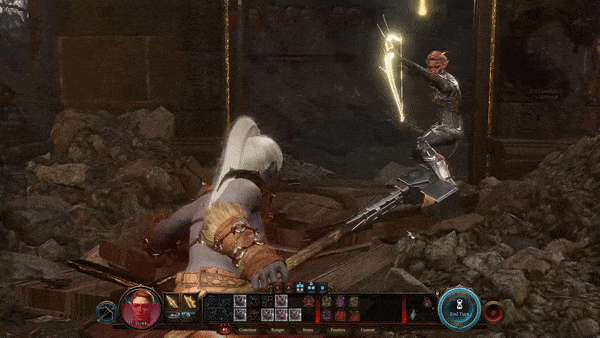
Rangers are skilled warriors who are at home in both the wilderness and the city. They are known for their ability to track and hunt their prey, as well as their ability to use nature’s magic to their advantage. The Ranger acts as an improved Rogue in Combat, with more armor and weapon proficiency and extra attack.
Ranger Class Pros:
- Extra Attack: Attack twice per action, doing more damage than Rogue.
- High Initiative: The Gloom Stalker subclass excels at striking first and eliminating the highest threat target.
- Spellcasting: Rangers can cast a limited amount of spells which can add area damage, debuff, and crowd control.
Ranger Class Cons:
- Requires Multiclass: Rangers power fades beyond level 5 and must multiclass to keep combat power increasing.
- Limited Spellcasting: Rangers have access to a smaller spell list and fewer spell slots than some other spellcasting classes.
- Arrow Dependent: Many arrows make the Ranger bow build one of the best in combat, but they require constant buying and selling to afford them.
The Ranger is the most powerful build for solo play with high survivability and range damage. The class is perfect for those who love a range class, especially with a bow. Ranger has more versatility in combat due to spell casting and their innate abilities and skills. The downside of the Ranger is that it lacks the outside-of-combat utility of the Rogue or Bard. However, only the Paladin compares to its raw power especially playing at the highest difficulty.
Read More – Top 10 builds for Baldur’s Gate 3
4 Sorcerer (A+ Tier)
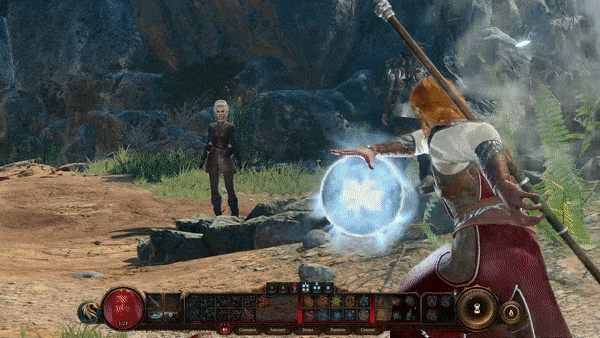
Sorcerers possess innate magical abilities and can cast spells without relying on external sources. With their sorcery points and metamagic options, they can customize and enhance their spells, making them incredibly versatile. Using metamagic, you can cast multiple spells during a single turn very early in the game. While the spell book is limited compared to a Wizard, the burst potential is high.
Sorcerer Class Pros:
- Metamagic: increasing range, casting an additional spell, and more, you are the master of magic.
- Elemental Affinity: You can gain increased damage with specific elements, further increasing your raw power.
- Spell Selection: The Sorcerer has access to some of the best spells in BG3, though not as many as the Wizard.
Sorcerer Class Cons:
- Spell Selection: Sorcerers have access to a more limited spell list compared to wizards.
- Spellbook: You cannot prepare spells outside of combat only through leveling.
- Complex: Sorcerer can be a bit more difficult to understand and use.
The Sorcerer class is a perfect spellcaster choice for players looking to gain the maximum damage. The downside of The Sorcerer is the limited spell selection and the fact that you cannot prepare spells. You will do the most damage, both area and single target, but require careful spell selection to keep your build on track.
3 Fighter (S- Tier)
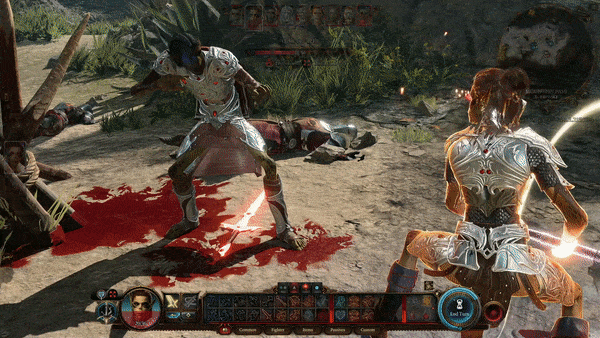
The Fighter class is a great choice for players who want to focus on dealing damage and being a tough tank in Baldur’s Gate 3. Fighters have a high hit point pool and access to a variety of armor and weapons, making them very durable in combat.
Fighter Class Pros:
- Weapon Proficiency: Fighters have access to a wide range of weapons and can become highly skilled in their use.
- Extra Attacks: Fighters gain multiple attacks at higher levels, even 4 attacks per action.
- Melee or Ranged: Fighters can also do well at range due to their unlimited weapon proficiency and thus keep damage high regardless of playstyle.
Fighter Class Cons:
- Limited Magical Abilities: Fighters lack access to spellcasting outside of one subclass.
- Weakness to Spells: Fighters can be shut down with spell-casting crowd control.
- Reliance on Equipment: Fighters heavily rely on their equipment to excel in combat.
The Fighter class blends ease of play with access to a variety of equipment and high damage. With the Fighter, you can level entirely without the need for multiclassing and keep a strong build. Additionally, the Fighter has the freedom and flexibility with build choices ranging from two-handed greatsword, sword and shield, and range bow users. The class doesn’t have the utility or spellcasting ability of others but is one of the strongest in Baldur’s Gate 3.
Read More – Baldur’s Gate 3 Shadow Magic Sorcerer Build
2 Cleric (S Tier)
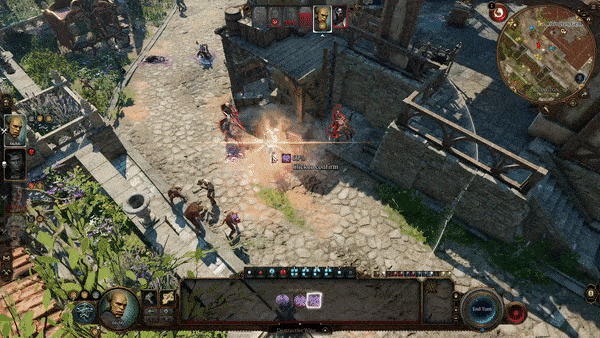
Clerics are divine spellcasters who are devoted to a particular deity. They are versatile characters who can be built to be effective in a variety of roles, including damage-dealing, healing, and support.
Cleric Class Pros:
- Spell Variety: Clerics have access to a wide range of healing, support, and offensive spells.
- Armor Proficiency: Clerics can wear armor and use a variety of armour giving them flexibility.
- Subclass Choices: Clerics have the widest and most versatility subclass choices giving them many build options.
- Support Spells: No other class has as many buffs, healing, and support spells as the Cleric.
Cleric Class Cons:
- No Extra Attack: Clerics melee builds can be powerful but lack extra attack features as many other melee damage dealers.
- Concentration Spells: Like other classes, Clerics have many concentration spells.
- Weak Mobility: Your main issue with the Cleric will be feeble mobility.
1 Paladin (S+ Tier)
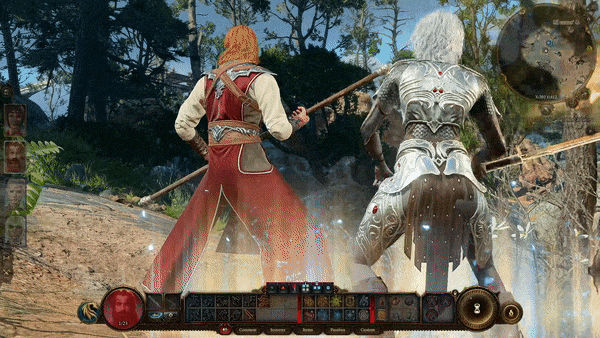
The best overall class in Baldur’s Gate 3 Patch 3 is the Paladin. You have the most versatility, single-target damage, and survivability all in one class. Paladins are formidable warriors with a divine connection, granting them access to powerful spells and abilities.
Paladin Class Pros:
- Divine Smite: Paladins can expend spell slots to deal extra damage, allowing for devastating attacks.
- Healing and Support: Paladins can heal and buff allies while continuing to be a high damage class.
- Weapon and Armor: Paladins can equip heavy armor, and marital weapons unlocking any build potential.
Paladin Class Cons:
- Limited Spellcasting: Paladins have limited spell selection and spell slots.
- Weak Mobility: Mobility is an issue with the Paladin outside of the Vengeance subclass.
- Code of Conduct: Paladins must adherence to a code or oath, which can restrict roleplaying options.
The Paladin, like other S Tier classes on our “Best Baldur’s Gate 3 Classes: Tier List” has access to nearly all weapons and armour types freeing up multiple playstyles. What separates the two is the Paladin’s ability to spell cast. Combine Extra Attack with Divine Smite gives you incredible raw damage potential. We highly suggest selecting the Paladin if you want the best overall class in BG3.
What Class Should You Pick in Baldur’s Gate 3?
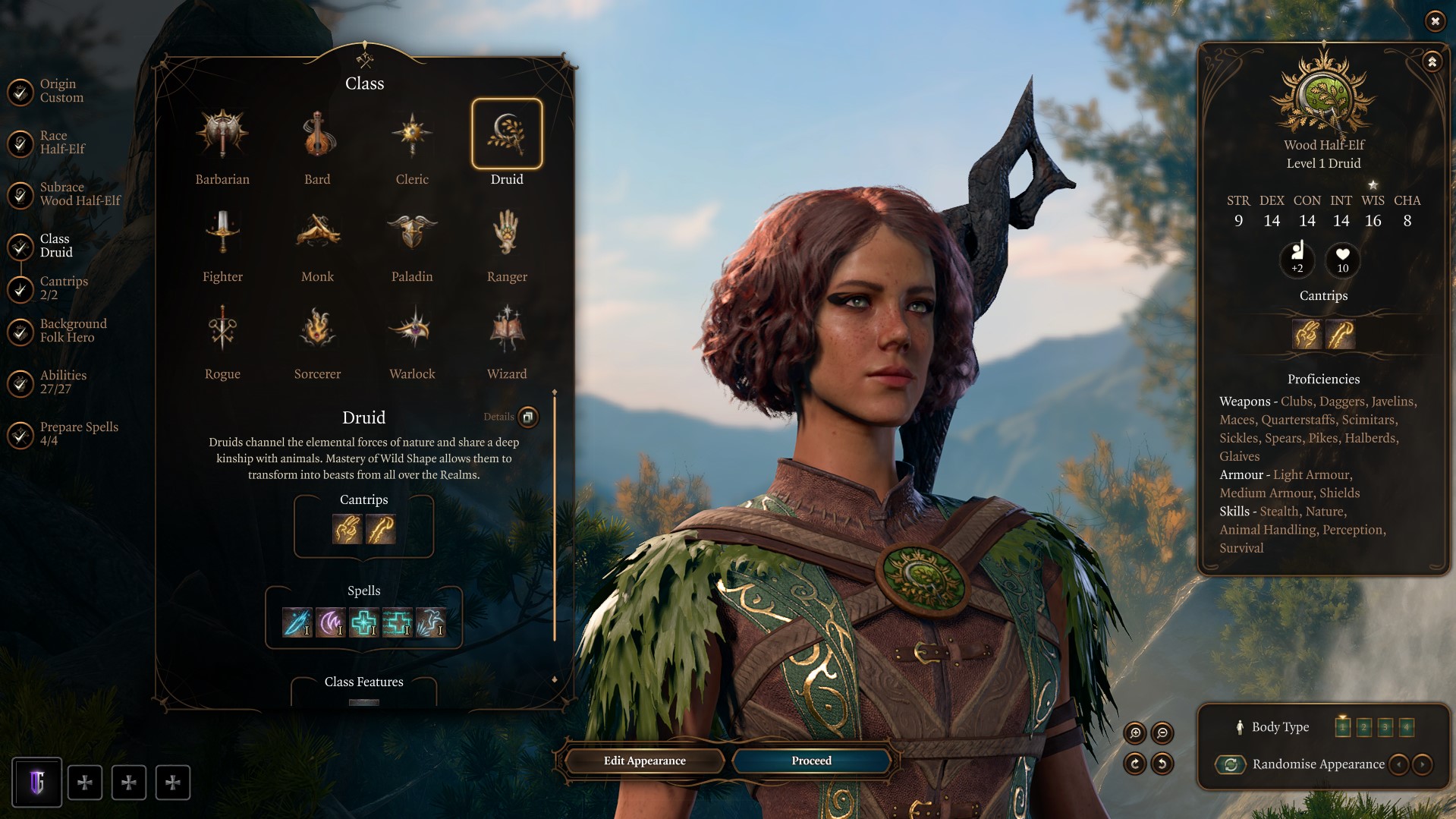
The best class to pick is the one that adds the most important gameplay elements for you. If you’re a heavily combat-focused player who enjoys ranged, then Ranger or Rogue would be a good fit if you love melee simplistic builds, Fighter or Barbarian. Moreover, if you enjoyed spellcasters with huge fireballs, then Sorcerer and Wizard. We recommend The Paladin because it blends the best combat performance with dialogue, exploration, and story. However, use this tier list to pick the class that will give you the most enjoyment in BG3.
Here are some additional thoughts:
- This ranking is based on several factors, including overall power, versatility, durability, and mobility.
- The ranking may very depending on playstyle, so it is important to experiment with different classes to find one that you enjoy playing.
Build Changes in Patch 7 for BG3
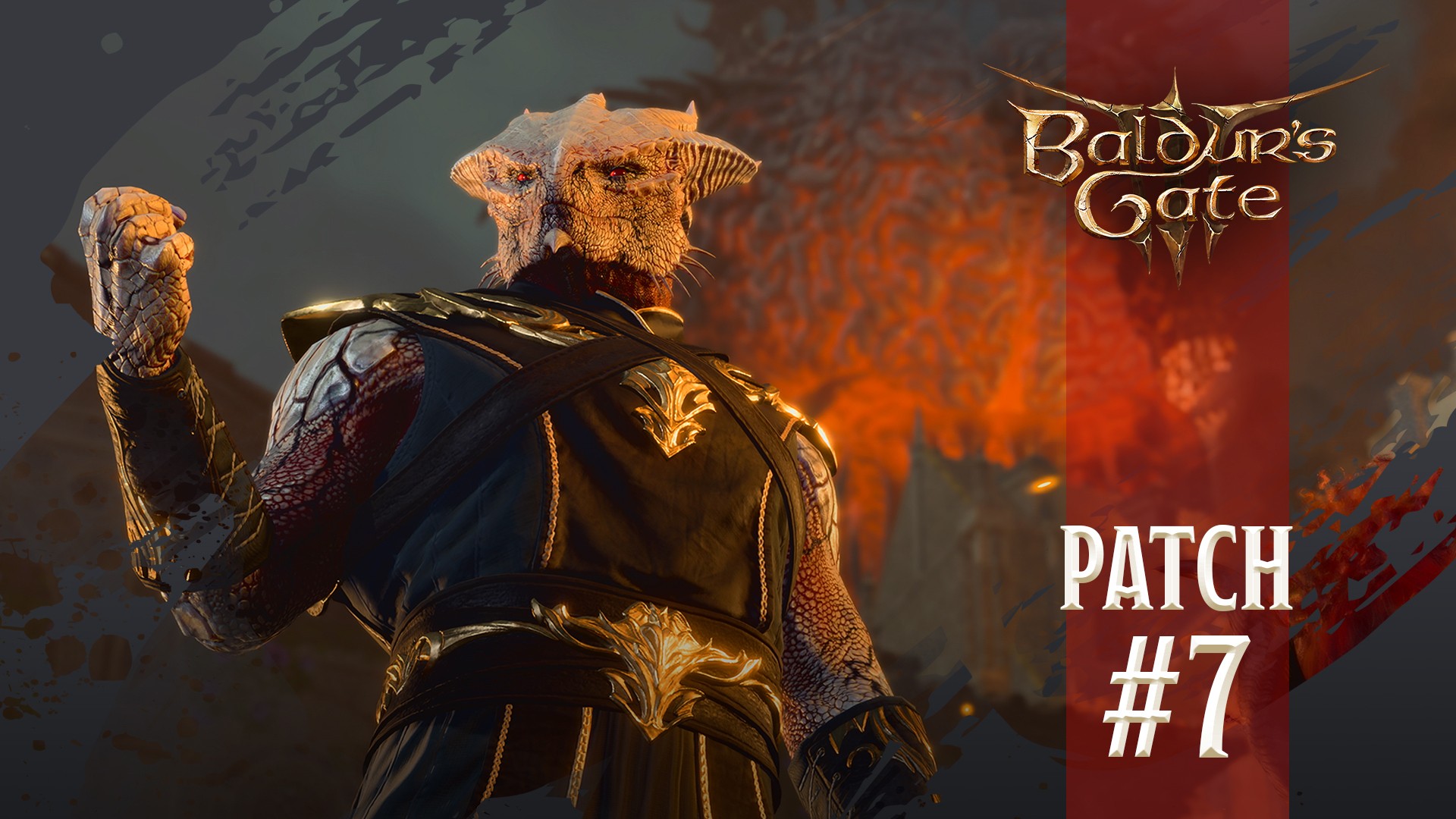
While Patch 7 changed many aspects of BG3, builds, combat, and gameplay remain relatively the same. On September 5th, 2024, Baldur’s Gate 3 got a big update with Patch 7. This update includes 13 new cinematics, including fight scenes with the Netherbrain. Honour Mode is also getting more challenging with new legendary actions for bosses. The main highlight of this patch is the addition of modding support. Players now have access to a modding toolkit and an in-game mod manager, allowing the community to create unique content and expand the game.
However, Larian Studios’ main focus in this patch is mods. The game now features a modding toolkit and an in-game mod manager, allowing players to create and install mods directly within the game. This update is intended to hand over creative control to the community, enabling players to produce unique content and continue the story in new ways.
FAQs
Q1. What is the best class in BG3?
Paladin and Sorcerer are among the two best classes in BG3.
Q2. What is the most picked class in BG3?
Paladin and Sorcerer are the two most picked classes in BG3.
Q3. What is the easiest solo class in BG3?
The easiest solo class in BG3 is Paladin since it is easy to manage and provides excellent burst damage and mobility.
Looking For More About Baldur’s Gate 3?
Thank you for reading Baldur’s Gate 3 Best Classes: Tier List Guide. We provide the latest news and create guides for Baldur’s Gate 3. Also, watch me play games on Twitch or visit my YouTube channel!
- Baldur’s Gate 3 Builds Classes and Companions
- Comprehensive Baldur’s Gate 3 Guides
- Baldur’s Gate 3 Classes & Subclasses
- Baldur’s Gate 3 Races and Abilities
- Baldur’s Gate 3 Collector’s & Deluxe Editions
- Best Gale Companion Build Guide Baldur’s Gate 3
- Best Shadowheart Companion Build Guide Baldur’s Gate 3
 Reddit
Reddit
 Email
Email
